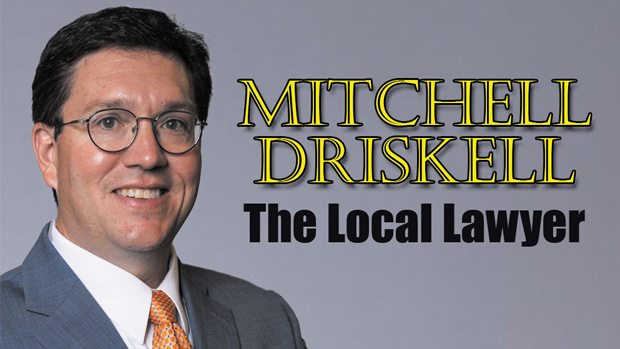
Since Roe v. Wade in 1973, states have been prohibited from imposing laws that infringe on the right to pre-viability abortions. Mississippi, historically known for not taking kindly to the federal government telling it what it can or cannot do, is challenging that constitutional rule in Dobbs v. Jackson Women’s Health Organization. Supreme Court observers believe that Dobbs has the best chance of the dozen or so abortion cases sitting on the Supreme Court’s desk to be selected for review and decision.
Mississippi is challenging Roe’s holding that the Constitution’s liberty and privacy guarantees give expecting mothers the constitutional right to choose abortion when the fetus is not yet viable, viability meaning when, in the Judgment of the attending physician, there is a reasonable likelihood that the fetus could survive outside the expecting mother’s womb (generally considered to be around week 24). After Roe, access to pre-viability abortion is a nation-wide right. Unlike other laws that seem to vary state-by-state, even county-by-county, pre-viability abortion became nationwide, from sea-to-shing sea, a right that states could not touch. And some states have hated it ever since.
However, in rulings after Roe v. Wade, such as Planned Parenthood v. Casey, the Court held that states do have legitimate interests in the area of abortion regulation, interests such as the protection of the health of expecting mothers, the dignity of unborn children, and the integrity of the medical profession and society, but only in post-viability abortions. And, as pre-textual as you might think those reasons are, and, like it or not, these cases give states the authority to pass post-viability abortion-restricting laws. And there’s the rub. You have one case, Roe, saying states cannot touch pre-viability abortions, and then other cases that say states have legitimate interests in abortion regulation. Mississippi is saying – what’s the difference in the age of the fetus? Either we can regulate abortions or not – we can and adios Roe. The Dobbs case sets up this direct clash of the right of the expecting mother and right of the state, and Mississippi argues that the state’s authority to pass laws limiting abortion extends to pre-viability abortions and trumps Roe v. Wade. With three Trump-nominated Justices, people wonder if Roe v. Wade is in trouble.

Mississippi argues that if the states have a legitimate interest to regulate post-viability abortions, then the states have the same interest to regulate pre-viability abortions. Mississippi argues that the state’s interest in protecting potential human life exists throughout the pregnancy and using viability as a point where the mother’s right to choose outweighs the state’s right to regulate is an arbitrary distinction, and a distinction that in today’s medical world where artificial wombs can carry a child outside of the mother is becoming less and less clear. Mississippi argues that, if it can regulate post-viability abortions, then it can regulate abortion from conception. In Mississippi’s court filings, the Mississippi Attorney General described the case as an “ideal vehicle” to untangle “the contradictions in this Court’s decisions overuse of viability as a bright line for measuring pro-life legislation.”
Mississippi’s case then gets into the weeds of constitutional law and involves the burdens of proof and standards of review in abortion-restricting legislation cases. Mississippi argues that the states effectively have the burden of proving that an abortion-limiting law is constitutional, but, rather, opponents of the law should have the burden of proving that the law is unconstitutional. “To-may-to, to-mah-to” you may be saying, but these legal issues, as semantic as they may appear, are important. Generally speaking, Mississippi argues that State abortion laws should be shown more respect by the Federal Courts and opponents should have to prove more than they do now to get a state abortion law struck down as unconstitutional. Some legal experts believe this is the argument that might have the most success, and, that, the Supreme Court could uphold Roe in the direct clash of the titans but change the burdens and standards that erodes the very protections of Roe.
Finally, in Dobbs, Mississippi argues that a health clinic cannot challenge an abortion law on behalf of its patients. The case was filed by a clinic on behalf of its patients. Mississippi argues that the clinic’s constitutional rights are not at issue and, if anyone can challenge the law at all, those challenges must be brought by people with a direct, constitutional right affected. This is called a “standings” argument, saying that this is not the health clinic’s fight, and the patients should fight their own battles, if they want to fight at all. “So what?” you might ask. Patients are rarely individually able to afford Supreme Court lawyers, and rarely organized to bring Supreme Court litigation collectively, so eliminating suits brought by others on behalf of patients would reduce challenges to abortion-restricting laws.
Some people might be proud, some folks might be appalled, but there is a good chance that Mississippi is the state that will be the ultimate test of Roe v. Wade.
Mitchell Driskell has been an Oxford lawyer for twenty-one years. He practices criminal law, family law, business transactions and civil litigation. Email him mdriskell@danielcoker.com. Follow him on Instagram @mdriskell, twitter @MODIIItweets, TikTik @DriskellLaw and on Facebook.

